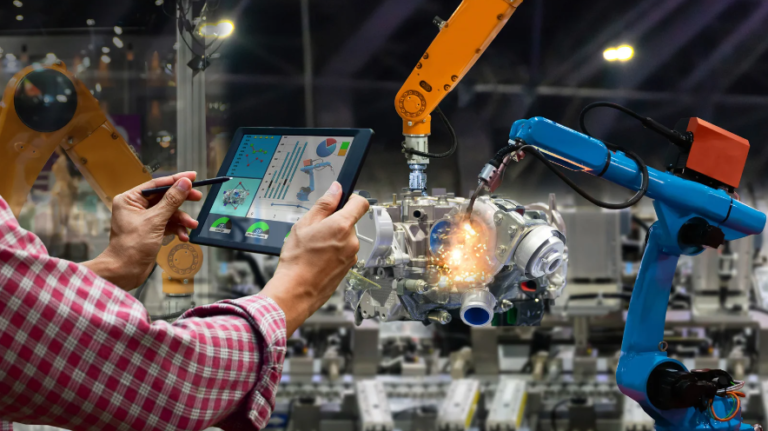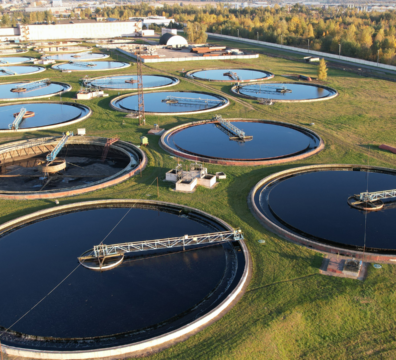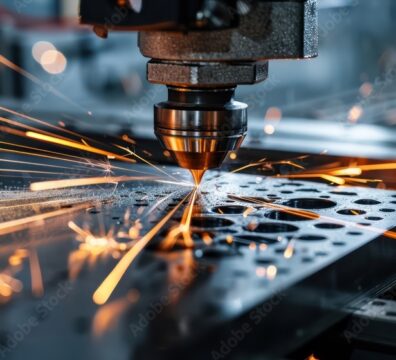95% of manufactured goods include chemicals and as the 4th largest industry in Europe, oxidative chemical conversion processes in manufacturing account for 5% of the EU’s greenhouse gas (GHG) emissions.
With headline-grabbing stats like those it is easy to understand why sustainability has become a critical focus for manufacturers worldwide.
As environmental regulations tighten and consumers demand more eco-friendly products, companies are turning to AI to drive their green initiatives. This blog explores how AI technologies are helping manufacturers achieve sustainability goals, reduce energy consumption, lower emissions, and support environmentally friendly practices.
The Role of AI in Sustainable Manufacturing
AI can significantly contribute to sustainable manufacturing by optimising energy use, reducing waste, and improving overall efficiency. To start, let’s take a quick look at some key ways AI is driving sustainability:
- Energy Optimisation: AI algorithms can analyse energy consumption patterns and suggest ways to optimise energy use. By identifying inefficiencies and recommending adjustments, AI helps manufacturers reduce their energy footprint.
- Waste Reduction: AI can predict and prevent production issues that lead to waste. By continuously monitoring production processes, AI systems can identify potential problems before they result in material waste, ensuring more efficient use of resources.
- Emissions Control: AI technologies can monitor and manage emissions from manufacturing processes. By analysing data from sensors, AI can identify sources of emissions and suggest ways to reduce them, helping companies comply with environmental regulations.
Sustainable manufacturing in operation
Z Prime has been instrumental in helping our clients implement AI-driven sustainability initiatives. Projects such as ELOXYCHEM are using advanced AI, machine learning, and digital twin technologies, to optimise electrochemical processes for stability, efficiency, and crucially sustainability. It’s a key initiative in aligning manufacturing with Europe’s green and digital transition goals.
In a recent project with a large electronics manufacturer, we deployed an AI system to monitor and optimise energy use across multiple production facilities. The system identified several areas of inefficiency and recommended changes that resulted in a 15% reduction in energy consumption and a significant decrease in carbon emissions.
By preventing machine failures and optimising production processes, AI helps manufacturers reduce energy consumption and waste. In a similar vein, AI-driven solutions can optimise production processes to minimise energy use and reduce emissions, supporting environmentally friendly manufacturing practices.
It is this application of advanced AI technologies to supporting manufacturers’ sustainability goals that makes them so compelling. AI technologies are designed to support sustainable manufacturing by improving efficiency and reducing the environmental impact of production processes.
Conclusion
Z Prime’s advanced AI solutions are not only improving operational efficiency through improved machine health and process optimization but also optimising the same processes against sustainability KPIs. It’s this co-optimisation of operational efficiency and quality and sustainability and circularity that makes Z Prime’s approach different.
AI is playing a pivotal role in driving sustainability in manufacturing. By optimising energy use, reducing waste, and controlling emissions, AI technologies are helping manufacturers achieve their green initiatives. As companies like Z Prime continue to innovate and implement AI solutions, the potential for a more sustainable future in manufacturing becomes increasingly attainable.
















